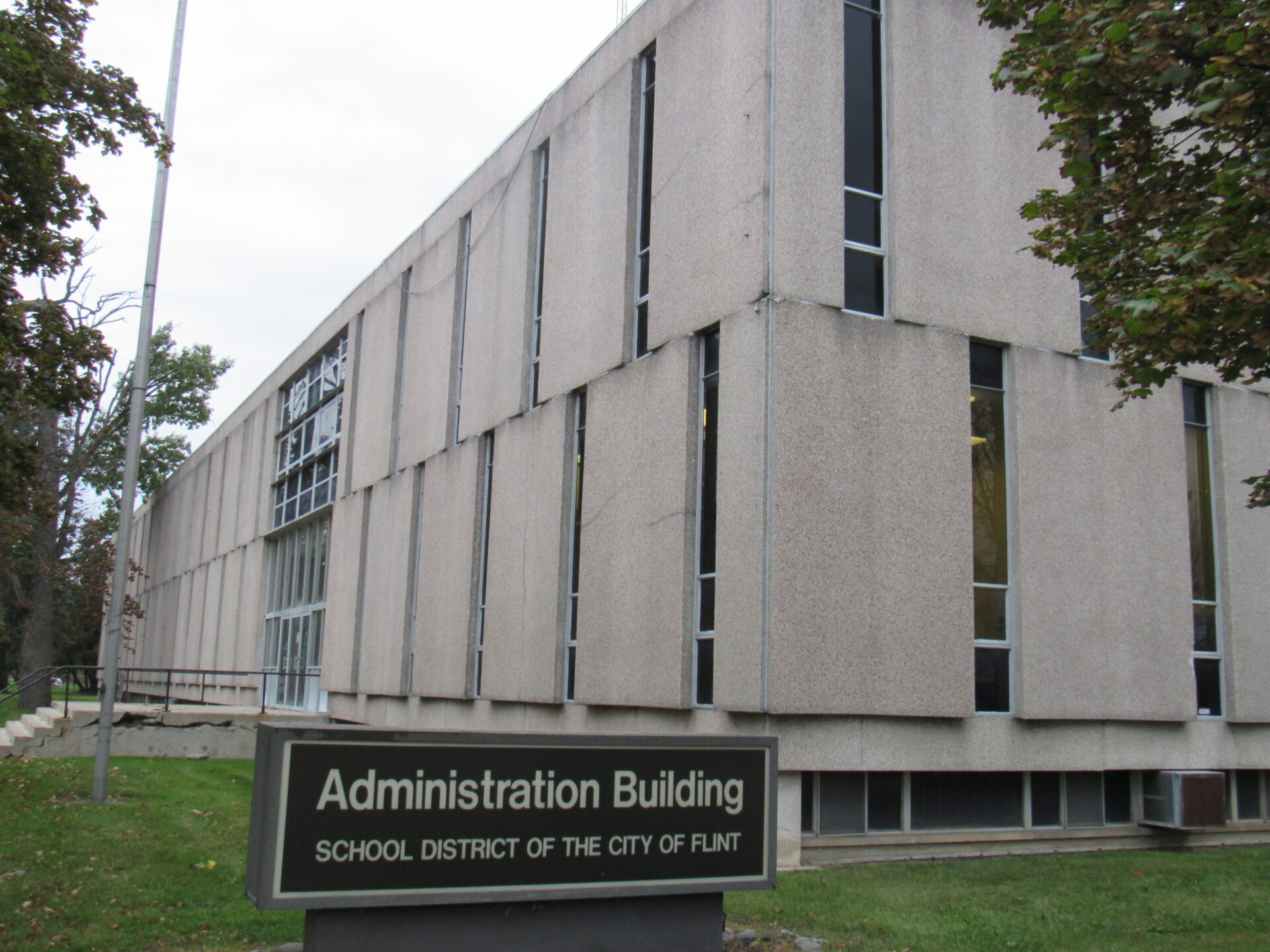By Harold C. Ford
At its June 18, 2025 meeting, some members of the Flint Board of Education (FBOE) seemed surprised and dismayed by Michigan Department of Education (MDE) assessment data presented by Windell Greene, president of the Mississippi-based Greene Education Services.
Greene’s tactful but straight-forward opening comment that “Flint schools have some needs, for sure,” foreshadowed the tenor of his report.
Aside from noting “serious challenges” such as graduation rates and academic performance landing below targets, chronic absenteeism, families choosing to leave Flint Community Schools (FCS), and the threat of state takeover, the consultant shared hard numbers.
Greene highlighted MDE data covering the district’s English Language Arts (ELA) and math proficiency from 2020 to 2023, noting that while several schools showed a positive trend, overall all Flint schools were below an 11% proficiency as of 2023.
He went on to discuss data from the 2023-2024 school year, asking the Board to focus on what MDE calls the “bottom 30,” or the students scoring in the lowest 30% on state-administered standardized academic tests.
“So your bottom 30 percent, none of the kids showed proficiency … that’s kind of expected,” Greene said, pulling up a chart of growth percentages by school. “But then you have none of your kids actually showing growth according to your state data – in all schools – for math and ELA, which makes it somewhat difficult to reach those other levels across the board.”
“Can we stop the bleeding?” asked Board Trustee Melody Relerford in response. “This is surprising. I mean, I can’t speak for the board, but just as me, the numbers speak for themselves.”
Relerford went on to say that “it’s ugly” but something she thinks the district can grow from, citing a trip to Mississippi that five Flint BOE members took in March to see Greene Education Service’s work first-hand.
“We just – I can’t speak for any other board member, but this is not acceptable,” she said of the presented data.
“You kind of left us a little bit speechless here,” FBOE President Joyce Ellis-McNeal added after echoing Relerford’s hopes that hiring Greene would result in a positive change for the district.
Despite some board members’ apparent surprise, Greene’s analysis of the district’s recent assessment data simply confirmed information already available for many years on the MDE website: Flint’s standardized test data, when measured against other districts in Michigan, is disheartening.
“Accountability is not blame, it’s ownership”
Later in the June 18 meeting, FBOE members heard a second analysis of assessment data from Kelly Fields, FCS director of academics.
Fields spoke frankly and essentially confirmed what the Board had heard from Greene.
“One of the things that was outstandingly clear from the data,” said Fields, “is that there is a direct correlation between schools that had the lowest amount of chronic absenteeism and the schools that had the highest amount of absenteeism.”
“And the correlation was clear,” Fields continued. “Eisenhower [Elementary] fared very, very well with their progress in making proficiency and growth, but they also had the lowest chronic absenteeism as well.”
“When students are present, they learn,” Fields concluded.
Fields also cited the growing number of uncertified teachers as another reason for poor student academic performance. “Across the board, in the buildings where they have an overwhelming number of uncertified teachers or long-term subs… we showed the lowest growth as well.”
In example, Fields shared that “Doyle/Ryder has the highest number of uncertified teachers” while noting that the school also has “the correlation of low growth and proficiency.”
“Accountability is not blame,” Fields advised, “it’s ownership.”
Editor’s note: FCS did make a move to course-correct its uncertified staffing in late April 2025 by offering a $12,000 “commitment bonus” to certified teachers and ancillary staff. However, the outcome of that, and the rest of the new agreement with the Flint teachers union, is not yet evident in available data.
“A problem across the state”
Though FCS assessment numbers are not sublime, Fields also noted that the district is not alone in its data.
“We have a problem across the state,” she said. “Sixty percent of students in Michigan are not proficient [in English language arts].”
A 2024 report by Bridge Magazine confirmed Field’s assertion, noting that about 40 percent of Michigan third graders are proficient in English language arts based on an analysis of ELA scores on the Michigan Standard Test of Educational Progress, or M-STEP.
“The new results suggest Michigan is not improving its literacy problem,” Bridge reported. “The state was ranked 43rd in the country for fourth grade reading on the 2022National Assessment for Educational Progress.”
Fields told the Board that “growth data tells the truth.”
“Pockets of success are just not enough,” she said. “Too many students are stuck, especially in math and early literacy.”
Fields added that the district “cannot expect different results with the same behaviors” and that “every day matters and every instructional move matters.”
The 2025-26 FCS school year begins on Sept. 2.
This story also appears in East Village Magazine’s August 2025 Issue.







